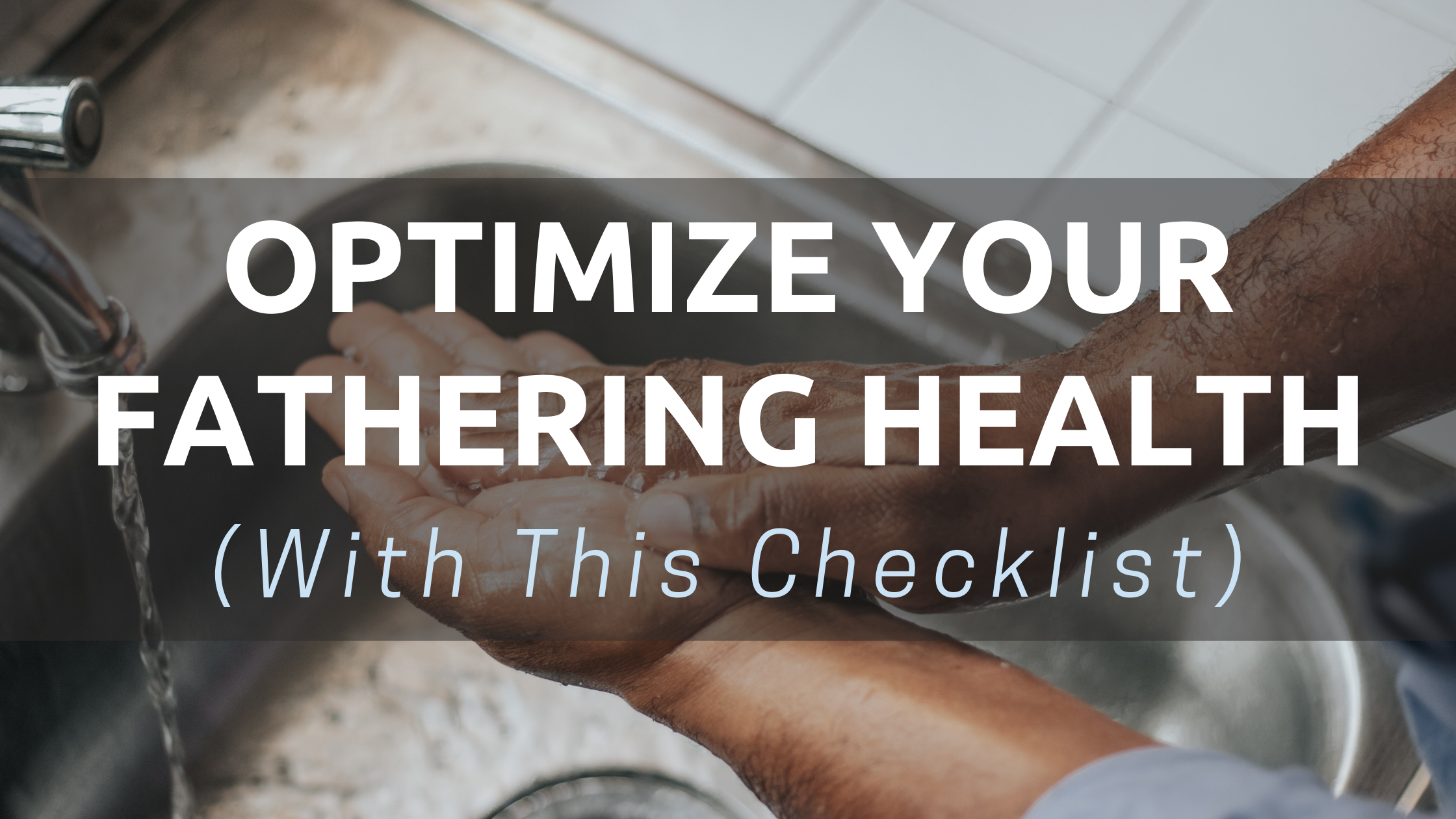Optimize Your Fathering Health (With This Checklist)
Michelle Watson
Let’s be honest. None of us likes it when someone else tells us what to do.
It’s hard enough when we’re forced to sit for our annual review while hearing our boss give feedback about our strengths and weaknesses. But since it’s protocol, we have no option but to endure the scrutiny.
So here’s my spin on your “annual review” as a #girldad. You have an opportunity to optimize your fathering health by evaluating yourself.
No lectures. No force. No hovering. Just you lifting up the “hood of your car” and checking the wiring in order ensure peak workability.
I have such great respect for men who are open and willing to be honest, even asking for input to achieve their goals, especially their fathering goals.
Although many dads I’ve spoken with haven’t written down or articulated their parenting goals, I’ve discovered that those ideals are actually tucked deep within and if defined, provide a road map to pursue the hearts of their daughters (and sons).
That’s where this self-assessment fathering checklist that I’m providing you today will serve as a proactive tool for your fathering toolbox. It supports your personal growth as a dad because it will help you clarify your vision.
There’s no need to go down a path of guilt or shame for things you’ve done wrong in the past, and there’s no better time than the present to begin changing the past. You have today and every day from here on out to make up for lost time.
After you take “The Dialed-In Dad Checklist” and see items that are not a part of your daily or weekly interactions with your daughter, write out two or three specific things that you are going to do starting today that will launch you on your journey toward being increasingly tuned-in to your daughter.
Here’s Your Game Plan---should you dare to accept it:
Challenge yourself to choose two new ways to connect with your daughter this week by using the lower-scoring items on the Dialed-In Dad Checklist.
For extra credit, invite your daughter to fill out this form about you as her dad. I guarantee it will show you where you’re rocking it and where you could use some improvement!
Click here for the Dialed-in Dad Checklist













